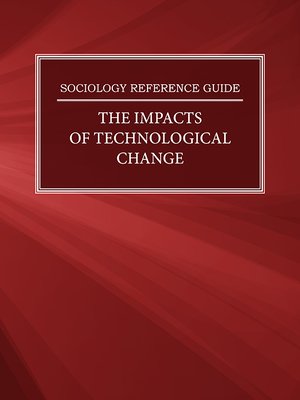
Sign up to save your library
With an OverDrive account, you can save your favorite libraries for at-a-glance information about availability. Find out more about OverDrive accounts.
Find this title in Libby, the library reading app by OverDrive.



Search for a digital library with this title
Title found at these libraries:
| Loading... |
Ruth A. Wienclaw, Alexander Stingl, and Michael P. Auerbach begin this collection with an introduction to the foundational
ideas of the relationship between culture and its tools. As Wienclaw points out, “the development of societies
rests at least in part on the developments of their technologies.” Stingl reviews the work of Jacques Ellul (1912-1994)
and his acclaimed Technological Society, which studies the way human behavior and social organization are continuously
reordered by systems of technology. Auerbach’s “Technological Revolution” broadens the subject by reviewing
the effects of modern technology on the evolution of the global economy. Since as early as the nineteenth-century, the
notion of “revolution” has long captured the real and imagined forces of innovation, and Auerbach’s essays help to
situate what that means for today’s society. These essays illustrate how daily life can change dramatically when new
products and innovations are introduced to everyday tasks and activities. One of the best examples of this is the invention
of the Internet and other forms of digital technology. Stingl’s essays explore the three facets of this phenomena:
the notion of a “digital divide,” which defines an inequality in access to information technology; the way the internet
has created new forms of communication and networking; and the changing forms of media and the creation of a new
generation of “digital natives.” Stingl reminds readers that new technologies can create opportunities for economic
and social transformation, but – as has often been the case – not all of society is able to benefit from such advancements.






